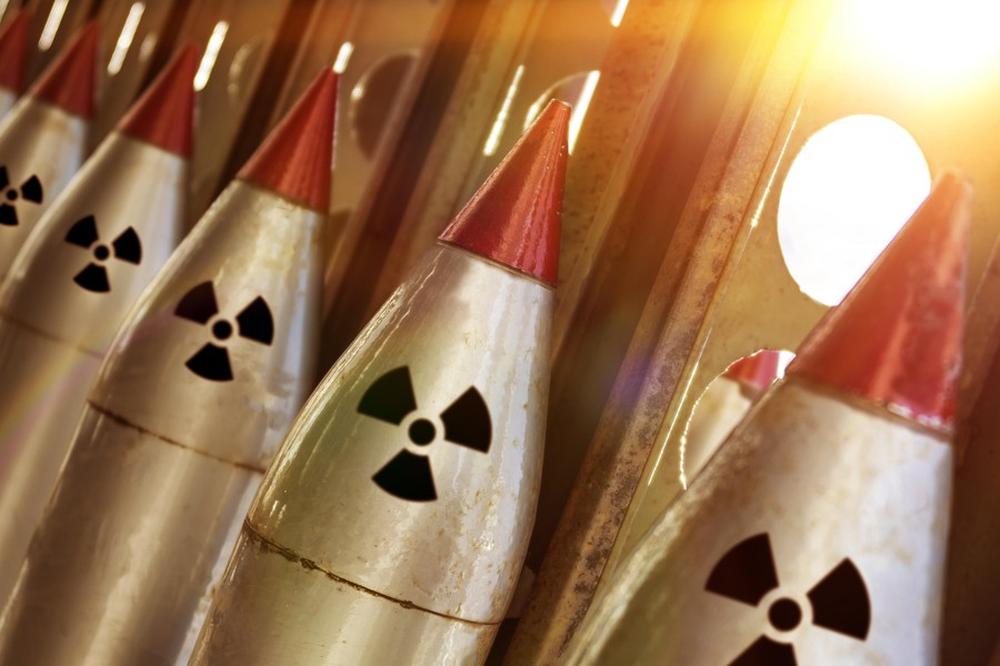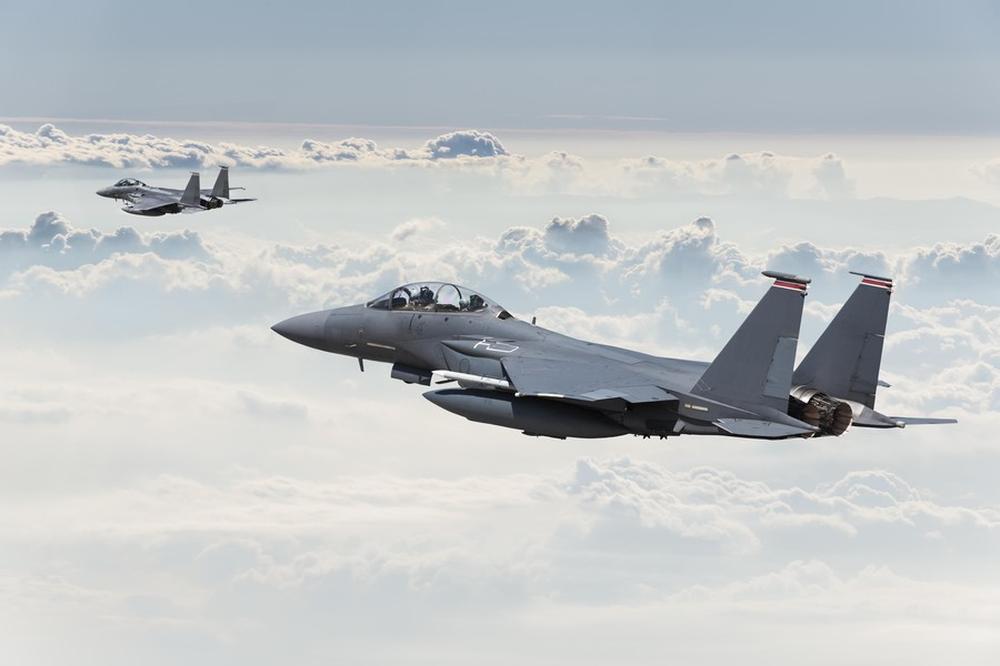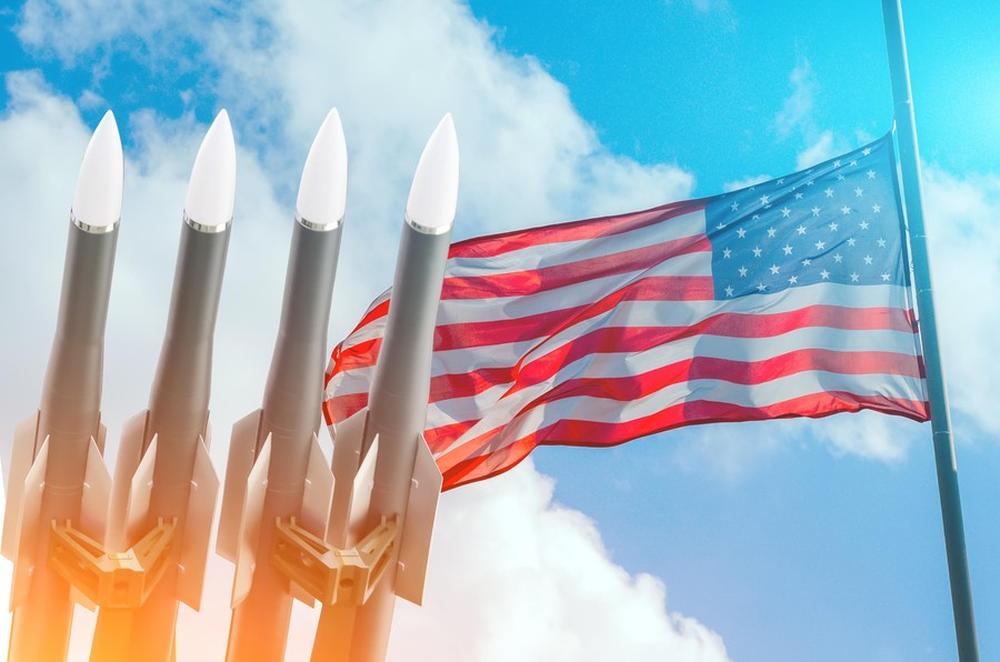- #Nuclear & Missile Issues
- #Security & Defense
- #US Foreign Policy

► Those who oppose the adoption of a “no first use” policy argue that the United States should have the option to launch a nuclear attack to counter an opponent’s non-nuclear attack, which will deter the opponent’s conventional threat.
► On the other hand, advocates of the “no first use” policy stress the fact that it is unimaginable to envision a case where the United States would actually launch a nuclear strike first against a potential adversary.
►...the sensitivities in Korea appear to be psychological in nature and are not based on any logical explanation...Rather, we have to discuss the dangers involving a nuclear war caused by unintended use of nuclear weapons on the Korean Peninsula.
► However, in order to prevent the use of nuclear weapons—which remains the fundamental goal of extended deterrence—we must go beyond the discussions of maximizing deterrence capabilities and engage in balanced discussions about reducing the inadvertent use of nuclear weapons and improving strategic stability.
The Biden administration’s upcoming Nuclear Posture Review (NPR) has received growing attention from within the United States as well as from allies and competitors. The reason behind this interest in the NPR—the fifth iteration since the end of the Cold War—lies in the fact that this will prove whether President Biden’s long-held conviction regarding the reduced role of U.S. nuclear arsenal will actually materialize into official U.S. policy. On the campaign trails, then-candidate Biden iterated that the United States “does not need new weapons,” and that he “will work to maintain a strong, credible deterrent while reduce our reliance and excessive expenditure on nuclear weapons.” Following inauguration, the Biden administration clearly outlined in the 2021 Interim National Security Strategic Guidance that the U.S. will “take steps to reduce the role of nuclear weapons in national security strategy.” His nuclear policy orientation is in line with the Obama administration’s proposal for a world without nuclear weapons, the so called the Global Zero policy. At the same time, it draws stark contrast to the Trump administration’s policy which focused on modernizing the American nuclear, weapons including low-yield nuclear weapons development.
The potential for a reduced role of nuclear weapons in U.S. policy has multiple implications. It implies that the United States will pull back on modernizing its nuclear, weapons —a commitment of $634 billion over the next decade. It also has implications for determining the standards of nuclear warheads in the US-Russia nuclear arms control negotiations as well as attaining limited-nuclear strike capabilities. For America’s allies, whether the Biden administration includes a “no first use” policy in the NPR has attracted great attention because of the potential implication for U.S. extended deterrence. A “no first use” policy means that the United States will not preemptively use nuclear weapons and that it will only choose to do so if the U.S. and allies are attacked by nuclear weapons first. This strays from past U.S. nuclear posture, which was open to the possibility of a retaliatory U.S. nuclear strike against conventional attacks.
Controversy Surrounding the “No First Use” Policy
There is growing controversy surrounding the “no first use” policy, which excludes the possibility of an American nuclear first strike against a potential non-nuclear attack. Those who oppose the adoption of a “no first use” policy argue that the United States should have the option to launch a nuclear attack to counter an opponent’s non-nuclear attack, which will deter the opponent’s conventional threat. Without the option to launch a nuclear strike, the United States’ only option will be to retaliate with conventional forces in the case of a non-nuclear attack against the U.S. and its allies. If the United States abandons the ambiguity involving the use of nuclear first strike and limits the use of nuclear weapons only to deter and respond against nuclear attacks, it will leave the door open for potential opponents to exploit the opportunity. Critics of the “no first use” policy have also pointed to growing concerns among American allies. Opting to adopt a “no first use” policy and, thereby, limiting the use of U.S. nuclear forces imply that the threshold for nuclear use has been raised, which will eventually lead to growing concerns among allies about the credibility of U.S. extended deterrence. In fact, American allies and partners in Europe and Asia have been known to strongly oppose the adoption of a “no first use” policy in the NPR whenever the issue had been raised in the past. The Obama administration, which had actively sought to reduce the role of nuclear weapons, decided against the “no first use” policy because of the potential damage to the credibility of U.S. extended deterrence. This also led to the conclusion that nuclear deterrence was not an issue of “sole purpose” but rather a “fundamental purpose.”
On the other hand, advocates of the “no first use” policy stress the fact that it is unimaginable to envision a case where the United States would actually launch a nuclear strike first against a potential adversary. This is especially the case since the United States has refrained from using a nuclear weapon against another nation since 1945. They question the United States’ willingness to break the nuclear taboo, which has been left unbroken for over 75 years. Moreover, a United States preemptive nuclear strike could lead to a nuclear war, which remains an unrealistic possibility. Advocates say that if a nuclear strike remains this unrealistic, the United States deterring a non-nuclear strike by leaving the door open to a nuclear first strike will also remain unrealistic. Another argument for the inclusion of a “no first use” policy is that it could reduce the potential for accidents. Giving the U.S. president the nuclear first strike option could lead to a dangerous decision, especially for a leader like Trump. The potential for warning system malfunctions as well as threats from potential adversaries who fear the United States’ first use policies are also cited as reasons why the United States should adopt a “no first use” policy.
Implications for the Korean Peninsula
Many Koreans remain critical about the United States adopting the “no first use” policy in the NPR. This decision by the United States will be seen as a step backward for U.S. commitment to extended deterrence. They argue that the United States should leave the door open to a nuclear first use in order to deter biological and chemical weapons. However, it remains to be seen whether a U.S. nuclear first strike option is necessary to deter North Korea’s military activities. In terms of conventional forces, the ROK-US combined forces overwhelm North Korea. The United States is fully capable of punishing North Korea with conventional forces should the North launch a non-nuclear attack, including biological and chemical weapons. Therefore, it is difficult to justify that North Korea will launch a non-nuclear attack if the United States is stripped of its nuclear first use option. During the Cold War, the United States’ “nuclear first strike” option was militarily significant in western Europe. NATO, which was militarily inferior to the Soviet Union, faced difficulty in terms of deterring and defending against conventional attacks by the Warshaw Pact forces without relying on nuclear weapons. The situation on the Korean Peninsula, however, is completely different. The United States maintains a military edge in dealing with an array of military situations—ranging from conventional provocations to nuclear war—incited by North Korea. We have to remember that the fundamental promise of extended deterrence remains intact even if a “no first use” policy is adopted. This will not impact the reality that the United States will continue to provide a nuclear umbrella in the case of North Korea’s nuclear attack. Therefore, the sensitivities in Korea appear to be psychological in nature and are not based on any logical explanation.
Rather, we have to discuss the dangers involving a nuclear war caused by unintended use of nuclear weapons on the Korean Peninsula. If North Korea does not launch a nuclear attack, will the United States’ use of nuclear weapons on the Korean Peninsula be desirable for Korea? Are situations on the Korean Peninsula desperate enough to justify the use of nuclear weapons? Obviously, a policy declaration does not necessarily lead to a military decision to launch a nuclear attack. However, it is true that giving the United States the option to launch a nuclear attack against non-nuclear threat will lead to a number of variables, including the U.S. president’s personal inclination, possibility of malfunctions involving warning systems, and the pressure on North Korea to use nuclear weapons first before it loses them(use it or lose it dilemma). Therefore, the decision regarding the first nuclear strike option must be made following a comparison of its advantages and potential disadvantages. So far, the potential shift in U.S. nuclear posture has been highlighted by concerns among American allies regarding the credibility of extended deterrence. However, in order to prevent the use of nuclear weapons—which remains the fundamental goal of extended deterrence—we must go beyond the discussions of maximizing deterrence capabilities and engage in balanced discussions about reducing the inadvertent use of nuclear weapons and improving strategic stability.
Before joining the Sejong Institute, Dr. Kim, Jungsup served for 27 years as a civil servant at the Ministry of National Defense of the ROK government. During this time, he held various positions of director for defense budget, military organization, and international policy. In addition, he served as a staff member of the National Security Council(NSC) in presidential office for 4 years. Most recently, Dr. Kim was Deputy Minister for Planning and Coordination at the Ministry of National Defense. He graduated from Seoul National University in 1993 and earned Ph.D in International Relations at the University of Oxford in 2005.

